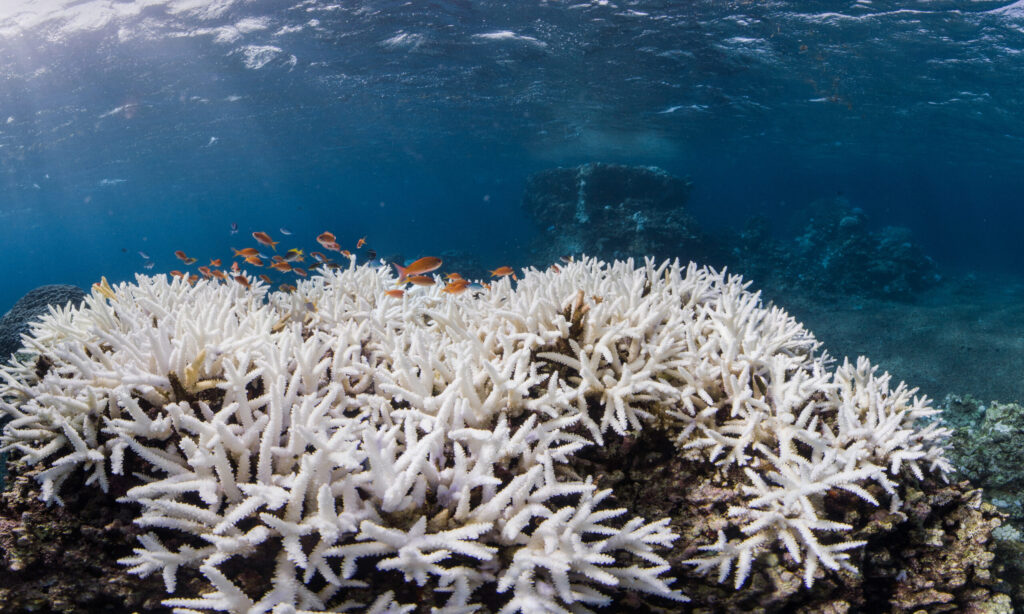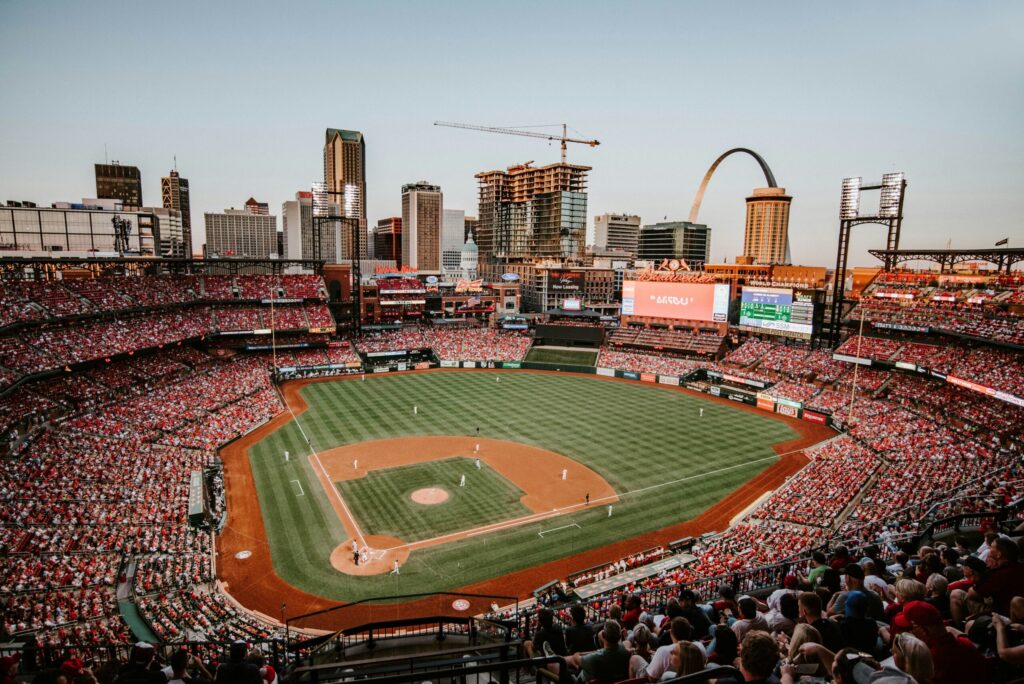HOW A WARMING OCEAN CAN IMPACT GAMES
Summer is usually known for vacations and time outside, but it’s also known for bringing a lot of heat. Recently, heat waves have been an unfortunate breakout star of the MLB season, with rising temperatures and poor air quality increasingly affecting players’ health and teams’ and leagues’ game schedules. Even in places where the ocean isn’t visible, environmental neglect is beginning to impact our most cherished pastimes.
Wondering how we got here? Let’s take a deeper dive into the interconnectedness of ocean health and human health, and how that affects the sports we love.

Our ocean absorbs 90% of the excess heat caused by climate change, making it the unsung hero–that truly takes one for the team–when it comes to a healthy planet. But as the Earth warms, so does our ocean, resulting in underwater heat waves getting hotter and more frequent. These marine heat waves have profound repercussions on the sea life that encounter them, including mass population die-offs and coral bleaching. Besides the devastating impact on life in the ocean, they also contribute to increased extreme weather inland, impacting wildlife and humans alike.
On land, if you’ve ever spent any time outside at a concert or a sports game, you know just how uncomfortable a heat wave can be. However, they’re not just uncomfortable–heat waves can negatively impact athletic performance across multiple activities, and the athletes at Busch Stadium experienced this firsthand earlier this month.

On June 21, 2025, the Cincinnati Reds, the team of our very own Team Ocean Captain Brent Suter, experienced high temperatures for their game against the St. Louis Cardinals. The heat was recorded at 92 degrees Fahrenheit during the first pitch, resulting in shortstop Elly De La Cruz getting sick on the field. That same day, emergency medical technicians had to treat Seattle Mariners’ Trent Thornton after he began suffering from heat exhaustion. The home plate umpire and a member of the Wrigley Field Staff also suffered from heat-related medical issues. And it doesn’t stop there—FIFA Club World Cup players have already expressed concerns about playing in the heat, with Borussia Dortmund’s subs watching the first half from the locker room to avoid the blazing temperatures.
In the short term, teams like the Cubs plan on bringing in a city bus to use as a cooling station in addition to the cooling and misting stations that were implemented. But these are short-term bandages on an issue that will only become more severe. That’s like benching a player with an attitude—without addressing the root issue, there won’t be any meaningful change.
At a large scale, reducing CO2 emissions is the most crucial step to take to mitigate the impacts of climate change. But what we also need is a commitment from leagues, stadiums and venues to cut single-use plastics, source sustainable merch, invest in green stadiums and educate fans about ocean health. Athletes can lead the charge as influencers in this space, serving as ocean advocates. Thankfully, some have already gotten started; shoutout to our Team Ocean Captains!

There is a need for urgent action—both in protecting athletes’ health and marine life—through policy and community-based initiatives. From a policy standpoint, you can help make an impact by calling on your state leaders to take climate action and protect your communities and our ocean here, or fight to ban the most common types of plastic foam here. And for your community, take part in local initiatives like cleanups or turn your next jog into a plog and record it with our Clean Swell® app! ⚾️ Are you ready to hit a home run and take action for our ocean? Let’s #ProtectWhereWePlay!